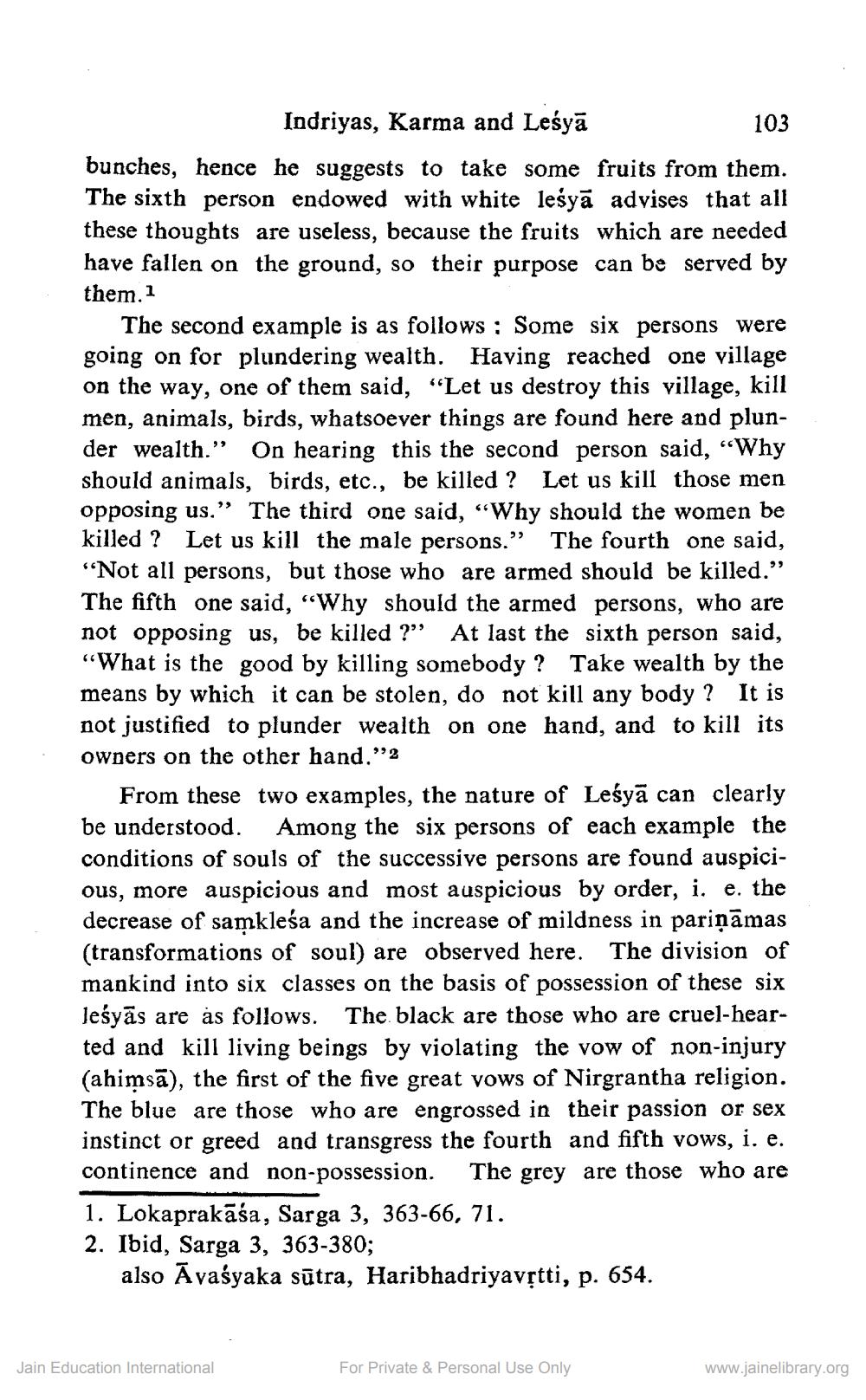________________
Indriyas, Karma and Leśyā
103
bunches, hence he suggests to take some fruits from them. The sixth person endowed with white lesśya advises that all these thoughts are useless, because the fruits which are needed have fallen on the ground, so their purpose can be served by them.1
The second example is as follows: Some six persons were going on for plundering wealth. Having reached one village on the way, one of them said, "Let us destroy this village, kill men, animals, birds, whatsoever things are found here and plunder wealth." On hearing this the second person said, "Why should animals, birds, etc., be killed? Let us kill those men opposing us." The third one said, "Why should the women be killed? Let us kill the male persons." The fourth one said, "Not all persons, but those who are armed should be killed." The fifth one said, "Why should the armed persons, who are not opposing us, be killed ?" At last the sixth person said, "What is the good by killing somebody? Take wealth by the means by which it can be stolen, do not kill any body? It is not justified to plunder wealth on one hand, and to kill its owners on the other hand."2
From these two examples, the nature of Leśya can clearly be understood. Among the six persons of each example the conditions of souls of the successive persons are found auspicious, more auspicious and most auspicious by order, i. e. the decrease of samkleśa and the increase of mildness in pariņāmas (transformations of soul) are observed here. The division of mankind into six classes on the basis of possession of these six leśyas are as follows. The black are those who are cruel-hearted and kill living beings by violating the vow of non-injury (ahimsa), the first of the five great vows of Nirgrantha religion. The blue are those who are engrossed in their passion or sex instinct or greed and transgress the fourth and fifth vows, i. e. continence and non-possession. The grey are those who are
1. Lokaprakāśa, Sarga 3, 363-66, 71.
2. Ibid, Sarga 3, 363-380;
also Avaśyaka sūtra, Haribhadriyavṛtti, p. 654.
Jain Education International
For Private & Personal Use Only
www.jainelibrary.org




